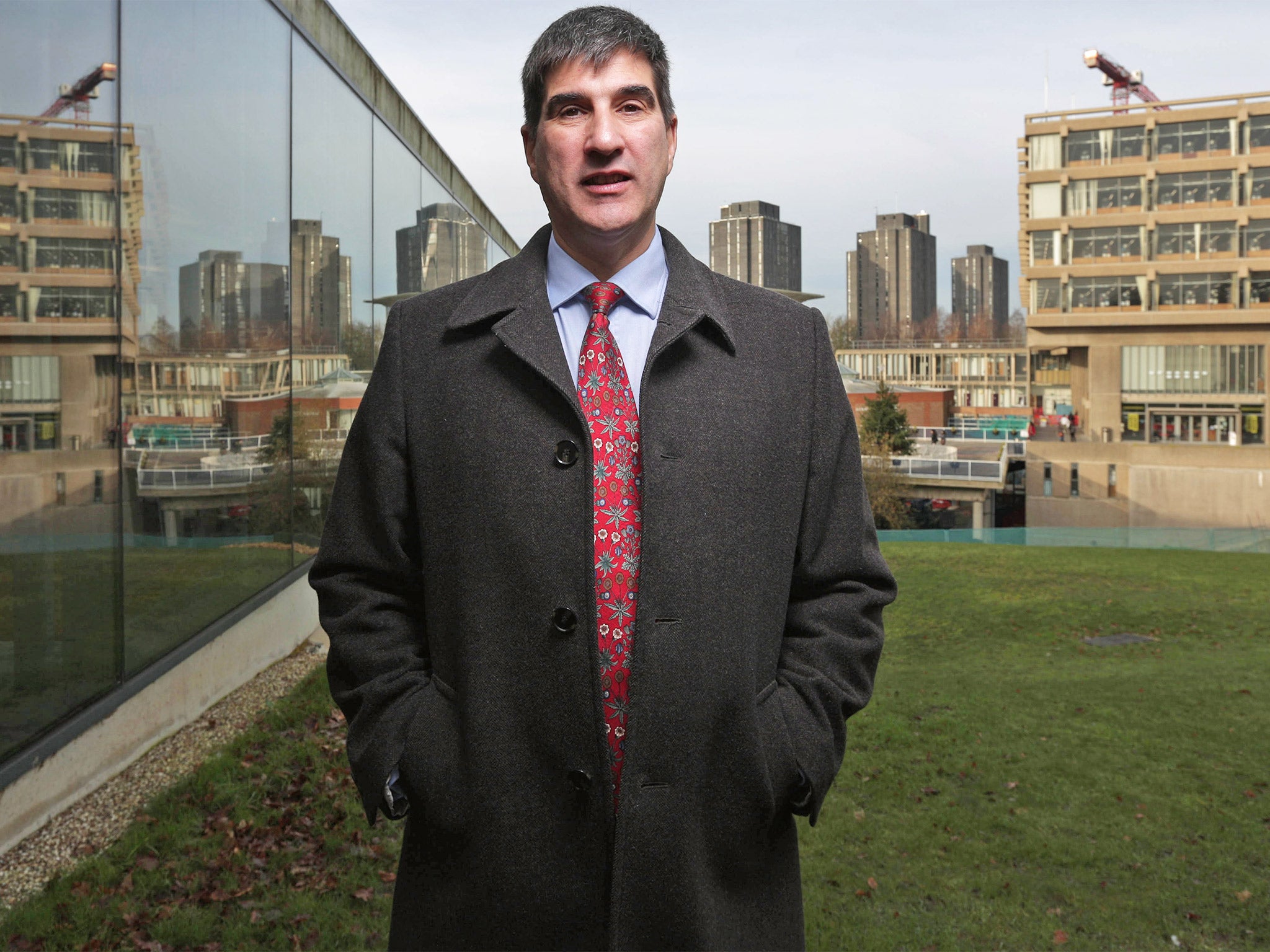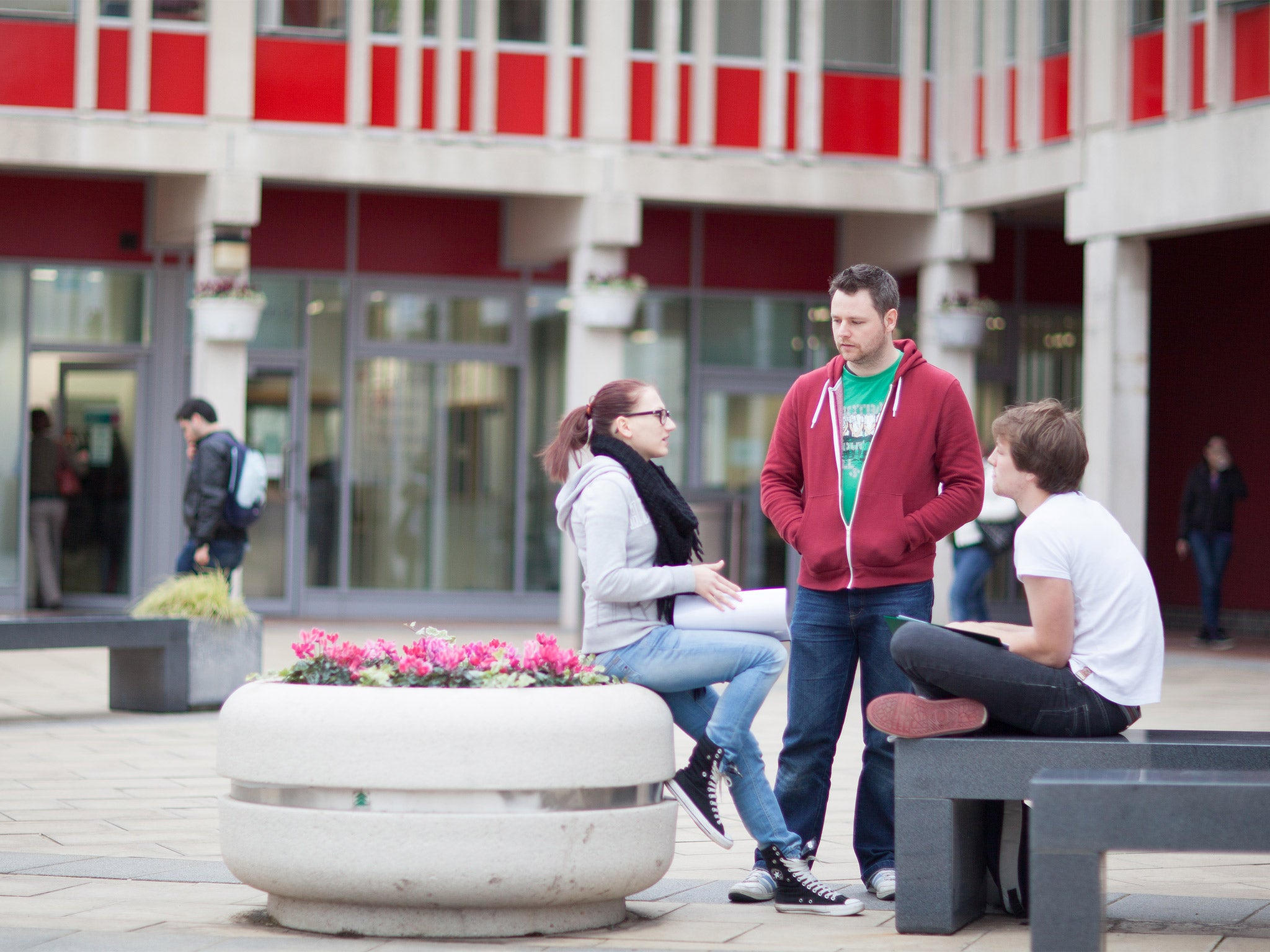Does Essex University still live up to its radical reputation?
In the 1960s, the university was known as a hotbed of student politics

Your support helps us to tell the story
From reproductive rights to climate change to Big Tech, The Independent is on the ground when the story is developing. Whether it's investigating the financials of Elon Musk's pro-Trump PAC or producing our latest documentary, 'The A Word', which shines a light on the American women fighting for reproductive rights, we know how important it is to parse out the facts from the messaging.
At such a critical moment in US history, we need reporters on the ground. Your donation allows us to keep sending journalists to speak to both sides of the story.
The Independent is trusted by Americans across the entire political spectrum. And unlike many other quality news outlets, we choose not to lock Americans out of our reporting and analysis with paywalls. We believe quality journalism should be available to everyone, paid for by those who can afford it.
Your support makes all the difference.If all had gone as planned, I should have gone to Essex University. I would have done, had I taken my A-levels more seriously. I got the grades I needed in English and history but was let down by politics and economics, where I could only manage an E.
My teacher summed up my work succinctly. In those days (the 1960s), when teachers felt more liberated to express themselves in end-of-term reports, he said: "Garner is brilliant at politics but hopeless at economics. Would make a good Labour Cabinet minister." (Not sure about the last bit.)
Had I gone to Essex I would have studied alongside members of the Angry Brigade – two of the four convicted for their roles in the Brigade's bombing of property in the late 1960s and early 1970s (Hilary Creek and Anna Mendelssohn) studied at Essex. So did Lord Triesman, later to become Labour party general secretary, but more famous at the time for being suspended from the university for his part in a protest that caused a lecture from a visiting speaker to be abandoned.
Oh, and then there was the incident of the car that was set on fire in the main campus square, which features in a photographic record of the university's history.
Returning to its academic achievements, though, the university is proud of its record in the humanities and social sciences. It has also recently been voted one of the 10 most political universities in the world by Which magazine – as if to show that its reputation for radicalism is not on the wane. Just before Christmas, it was rated the number one university for political research in the Research Excellence Framework, which ranks all UK universities.
Goodness knows how my life would have changed had I gone there. I suspect that nearby Harlow Technical College, where I went instead to study journalism, was probably a far safer environment.
Essex, which is currently celebrating its 50th anniversary, was founded as a radical university, with its first vice-chancellor, Albert Sloman, committed to providing an environment that encouraged radical thought and taking students who would challenge prevailing orthodoxies. He said of his vision: "Apart from its formal teaching, a university ought to give students the chance to think and argue about the fundamental problems of life and to stand on their own two feet."
"Albert wanted to break down barriers between staff and students," says Professor Anthony Forster, the university's current vice-chancellor.
The university was opened soon after the publication of the Robbins Report, the seminal inquiry into higher education in the 1960s, which had as its main principle that everybody who would benefit from a higher education should be able to obtain one.
Students in the 1960s might have sometimes taken Sloman's vision of the radical university a little too far. The suspension of Triesman and two other students for their role in the protest that forced the abandonment of a lecture by Dr Inch from the Ministry of Defence's chemical and biological-research facility, Porton Down, led to a stand-off between the students and the authorities. The students declared their own "free" university and began instigating their own programme of lectures and debates. The three students were subsequently reinstated.

Albert Sloman's other vision – that of building the university up to 20,000 students – was also never realised. That, though, was due to the government's strict number controls over student admissions. There was also a suspicion in the university that it was being penalised by the authorities for its radicalism in promoting itself as equally committed to teaching and world-class research. "You were either a teaching or a research institution in those days," recalls Professor Forster.
In its 50th year, the university is currently making greater strides towards that goal than at any time in its history. Last year, for instance, saw the number of student registrations rise by 21 per cent, as the Government embarked on the first stage of its programme of abandoning any cap on numbers. It now has 12,000 students enrolled and the intake is split between home students and significant numbers of EU and international students. During the next two years, as a number of controls are scrapped completely, the university is intending to expand to 15,000 or 16,000 students. It will be offering a range of new courses including journalism, social work and data analytics. "We're also extending into anthropology," says Forster.
It has recently joined forces with the East 15 Acting School in Loughton and now has student campuses in both Loughton and Southend as well as its main campus in Colchester. Its alumni include the Speaker of the House of Commons, Jon Bercow, and the actor Alison Steadman. Others include Shirin Sharmin Chaudhury, the current speaker of the Bangladeshi Parliament and also Rodolfo Neri Vela, a Mexican who became the second man from a Latin American country to go into space.
Its academics have also gained national acclaim – including the psephologist Professor Anthony King, whose insightful analyses of voting patterns have brightened many an election night.
I ask Chantel le Carpentier, president of the students' union at Essex, whether the university had lived up to its radical legacy.
"I think students still campaign – but the type of campaigning is different now from the earlier days," she says. She has been president for six months and before that was vice-president, at a time when the union ran a high profile campaign, "Boobs Aren't News", to try to stop The Sun from running its Page Three images of topless women. The students banned The Sun and the Daily Star from being sold in their campus newsagent's shop and their campaign earned an appearance on BBC's Newsnight.
"You get a certain type of academic here – especially in the social sciences – who would say to you about an idea, 'right on, go for it,'" she says. "I don't think you'd have that atmosphere in Oxford or Cambridge. The vice-chancellor is very much into the spirit of breaking down the barriers between staff and students." Le Carpentier, who is studying history, has put her studies on ice for a year as she takes on the role of student president. Next year, she will go abroad for a year as part of her course, and will then complete her final year of study at Essex.
That will make six years at Essex, so, she says, "I think you could say I like it. I fell in love with the place when I first came here with my mother."
She describes herself as "not that left wing" and adds that she favours a graduate tax to solve the dilemma about student funding. She likes the idea of loans for post-graduate education, announced by Chancellor George Osborne in his Autumn Statement, but wishes that Labour could have thought of such a radical idea first. One thing she likes about Essex is that "there is no hierarchy".
Recently, Essex appointed Shami Chakrabarti, director of Liberty, as its chancellor, as if to emphasise its liberal heritage.
Reflecting on what he would like to achieve during his last term of office, Professor Forster says: "I'd like to look back and see that I've been in charge of a university that not only is recognised for its quality of teaching but is undertaking world-class research and providing an outstanding education for our students, producing graduates who are in very high demand and are productive global citizens.
"They should stand up to be counted, challenge the status quo and go out into the world and make a difference."
That, in a nutshell, is the history of the first 50 years of Essex University.
Join our commenting forum
Join thought-provoking conversations, follow other Independent readers and see their replies
Comments